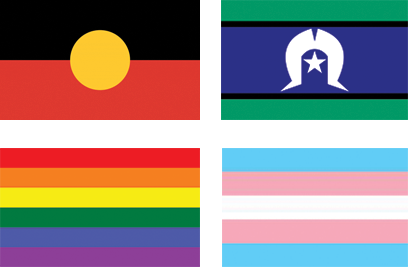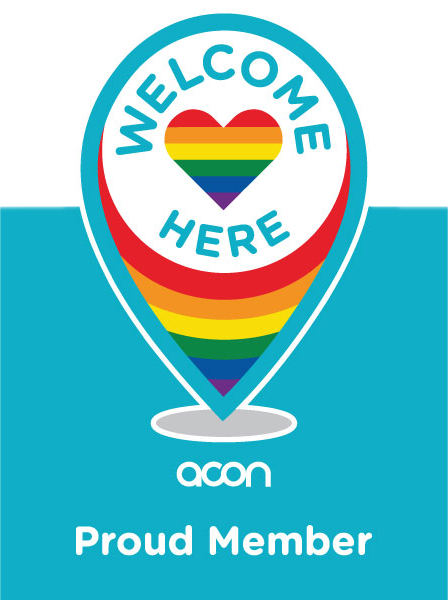Culturally & Linguistically diverse Clients
Migrant women's Support program
Women’s Safety Services SA offers a specific service for women of diverse cultural and linguistic backgrounds who are in unsafe relationships. The Migrant Women’s Support program is responsive to culturally sensitive needs, conducts risk assessments, safety management, information, advocacy, and refers to, and engages with other relevant services.
The staff of the program are bilingual and bi-cultural and work in partnership with domestic violence services, and other service providers including interpreters. They have specialised knowledge about the complexity of domestic and family violence within culturally diverse communities.
Understanding Domestic Violence in a Cultural Context
Culture is never an excuse for violence. Domestic and family violence is not acceptable in any culture or community.
Culturally and linguistically diverse (CALD) women share many issues and experiences in common with non-CALD Australian women in relation to domestic and family violence and sexual assault. However, their experiences can be exacerbated by factors such as not being able to speak English, not understanding Australian systems, having no independent rental history, lower employment rates, lack of transport, and having few friends or family members in Australia who can provide support.
There is a need to recognise the diversity of CALD communities when developing programs and supports to reduce violence against women. Migration, cultural, religious and other issues can influence the ways in which women and children experience and how their communities respond. Nuanced understanding of CALD communities and their diverse cultural contexts is required, rather than a one size fits all approach.
CALD women are less likely to report violence, can experience more barriers in accessing support services, and are less likely to leave a family violence situation than other Australian women, due to the following factors:
- Understanding of Australia’s laws, rights and cultural norms, especially by new arrivals
- Familiarity with knowledge of support services
- Availability and accessibility of support services
- Resolving immigration status and eligibility for support services and payments
- Women’s isolation and community participations
- Cultural beliefs and norms about gender and marriage
- Capacity of community and religious leaders
- Standards in interpreting and translating
- Police interventions
- CALD men behaviour change
- Intersectionality of issues for CALD women
Understanding diversity
There are more than 275 cultural and ethnic groups recognised in Australia, and this figure is growing. For these communities, their specific ethnicity, culture, religion and country of origin can be critical identity markers.
In addition, each community has its own unique composition, depending on the migration history of its members. To quote the Platform for Action from Australia’s Department of Social Services, “the reality with CALD communities is there is diversity within diversity.”
A particular challenge is that CALD women could experience significant isolation, especially those who do not consider themselves part of a specific CALD community or part of a broader Australian society. Instead, they may consider themselves as individuals or members of families only.
This lack of social connection can be exacerbated by certain factors, such as temporary or unresolved visa status and ineligibility for support services.
Resources
TIS – Translating and Interpreting Service (National)
- The Department of Home Affairs provides the TIS National interpreting service for people who do not speak English and for the English speakers who need to communicate with them.
- TIS has access to over 1 750 contracted interpreters across Australia, speaking more than 170 languages and dialects.
- To access an interpreter over the phone, call 131 450 – available 24 hours a day, 7 days a week
- For further information, go to their website
Interpreting and Translating Centre (SA)
- Interpreting and Translating Centre provides interpreting for interviews (to attend on-site appointment) and also interpreting over-the-phone, covering in over 100 languages.
- Call them on 08 8226 1990
- For more information, go to their website
ABC International Pty Ltd
- ABC International provides interpreting and translating services that are professional, reliable and cost efficient on 24 hours – 7 days basis, covering over 120 languages and dialects.
- Call them on (08) 8364 5255
- For more information, go to their website
Migration and settlement are governed by Federal Law. It may presented in a context of a particular state, but they are the same in every state of Australia. Eligibility issues in relation to immigration status and welfare benefits can raise significant barriers to leaving violent situations and accessing assistance.
More information about specific situations available in the documents below. These documents are to be used as guidelines and not as legal advice.
- Barriers to the Justice System Faced by CALD Women Experiencing Family Violence – Victorian Health Foundation
- Refugee Settlement, Safety and Wellbeing: Exploring Domestic and Family Violence in Refugee Communities – VicHealth
- What about the Children? The Voices of Culturally and Linguistically Diverse Children Affected by Family Violence – Immigrant Women’s Domestic Violence Service
When working with a culturally and linguistically diverse client, consider the following:
- The role of culture, language and religion in relation to the violence
- Nature of their arrival in Australia and length of time spent here
- Your client’s Visa status
- Their community support and how safe it is
- Their understanding of the criminality of domestic and family violence in Australia
- Your client’s knowledges of service systems, as well as their understanding and confidence in confidentiality when accessing services
- Assessing their dependence on the perpetrator for residency, housing, money or food
- Their experiences of forced marriage, dowry abuse, trafficking and female genital mutilation
The State Government has produced four fact sheets related to Domestic and Family Violence.
These fact sheets have been translated into 25 languages and can be accessed here.



